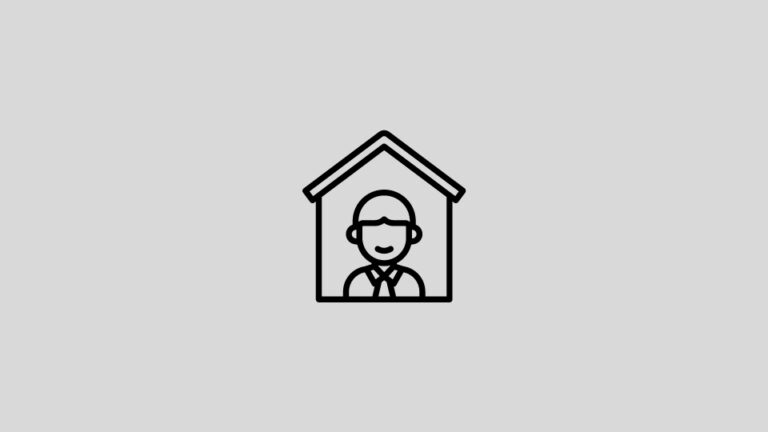What Happens to Tenants when A Property Is Condemned
A condemned property has been considered dangerous or unfit for human habitation. This can happen for various reasons, including housing code breaches or eminent domain, and the process can be difficult for both landlords and tenants. Knowing tenants’ rights during condemnation is critical since it can seriously affect their living circumstances and financial obligations.
This article will examine the condemnation procedure, tenant rights during the process, legal concerns, and what happens to a condemned property. We will also review the need for legal counsel and comprehend the essential aspects for tenants and property owners facing condemnation.
Condemnation Process

Condemnation is a legal action that can be started for various reasons, such as housing code violations or eminent domain. When a property is condemned, local authorities will issue an order to the owner to fix any problems that make the structure hazardous or constitute a threat to its occupants.
If a property is considered unfit for human occupancy, the tenant may be required to evacuate. Sometimes, the owner may be granted a time frame to renovate the property to meet the needed criteria. This timeframe can be worked out between the owner and the local authorities to guarantee that the essential repairs are executed as soon as possible.
A local inspector will validate that any code issues have been corrected after the owner has completed all required repairs. This ensures that the property meets the requirements for human occupancy and is no longer a hazard to the tenants. Understanding that the condemnation procedure can be complicated and legal advice is essential for navigating the legal complexities.
Tenant Rights Upon Condemnation

When a property is condemned, tenants have specific rights. In most circumstances, the lease arrangement is canceled, and the renter is no longer obligated to pay any rent after the title has been vested in the condemnor. The tenant must evacuate the premises and hand possession to the landlord.
It is critical to realize that when a lease agreement is ended due to condemnation, the tenant has no further obligations to pay rent or abide by the lease provisions. The renter must, however, ensure they exit the premises on time and return possession of the property to the landlord.
If the renter does not quit the premises, the landlord may commence eviction proceedings to have the tenant removed. The tenant may be entitled to compensation for the loss of their house, leasehold interest, relocation charges, and any personal items they cannot remove in specific situations.
Generally, renters must be informed of their rights during the condemnation process and seek legal counsel to safeguard their rights. To make informed judgments and avoid any legal complications, it is critical to understand the lease agreement’s provisions and the ramifications of the condemnation procedure.
Legal Considerations
Both landlords and tenants must grasp the condemnation provision in the commercial lease when it comes to legal concerns of condemnation. This clause describes both parties rights and obligations in the event of a condemnation.
The condemnation lease provision may address many issues, including leasehold termination, restoration requirements, apportionment, bonus value, rent abatement, and relocation rights. It is critical to go over this paragraph carefully in order to understand what happens if the property is condemned and to guarantee that all parties are safeguarded in the case of condemnation.
Tenants have a right to compensation if their leasehold interest is condemned. This compensation is based on the leasehold estate’s value and damages for portions not taken. The tenant may also be able to seek compensation for unamortized leasehold improvements, relocation costs, business loss, fixtures, and personal property.
It is critical to seek legal counsel to fully comprehend the condemnation’s legal implications. A lawyer can review the lease agreement, determine the appropriate tenant compensation, and assist the tenant in negotiating the best possible outcome. Both landlords and tenants can protect their rights and avoid legal issues by understanding the legal considerations of condemnation.
Tenant’s Rights in a Condemnation Action
Tenants have certain rights when a property is condemned that protect them from being left without compensation or a place to live. Tenants have the following key rights in a condemnation action:
Leasehold interest compensation:
If the tenant’s leasehold interest is taken or damaged, they are entitled to compensation for the value of the leasehold interest. This means that if the tenant’s right to occupy the property is revoked, they are entitled to compensation equal to the value of the leasehold interest they held.
Compensation for damages to portions not taken:
Even if only a section of the property is stolen, tenants are normally entitled to compensation for any damage done to the remainder of the property.
Unamortized leasehold improvements:
Tenants may also recover unamortized leasehold improvements made to the property. This includes any modifications they made to the property that have yet to be paid for in full.
Relocation expenses:
If the renter is compelled to relocate due to the condemnation, they may be entitled to reimbursement for relocation costs. This can involve the cost of relocating and seeking new housing.
Loss of business, fixtures, and personal property:
If the tenant’s business is harmed due to the condemnation, they may be entitled to compensation for lost income. They may also be entitled to compensation for fixtures or personal belongings left behind.
Understanding Condemned Houses
Condemned residences can endanger the public and their occupants. A property is declared dangerous and unfit for human habitation for various reasons. It is usually the result of frequent housing code infractions that the owner or landlord still needs to correct. These breaches can include structural flaws, electrical or plumbing concerns, mold, bug infestation, or a lack of sanitation.
A property may be condemned owing to abandonment in some instances. Abandoned houses offer a safety risk to the community since they may attract squatters, vandals, or criminals. They can also cause fires and attract mice, which can spread disease.
It is critical to understand why a property has been condemned since it might negatively influence the safety and well-being of everyone in the area. Furthermore, if you are a tenant residing in a condemned house, you must know your rights and the next measures to take. If you are still trying to figure out what to do, seek legal counsel.
What Happens to Condemned Houses

When a house is condemned, it is only safe to live in once it has been rehabilitated and inspected. Yet, rehabilitation is insufficient in other circumstances, and the house must be razed. This is frequently when the house is so badly damaged that it endangers the community’s safety.
Following condemnation, an investor or contractor may purchase and rehab the property. These properties are frequently offered at a lesser price and represent an excellent investment opportunity for someone willing to put in the time and effort to rehabilitate the property. However, remember that the rehabilitation procedure might be expensive and time-consuming.
Local governments may seize control of the property and either sell it or demolish it in some situations. This can be done to decrease safety risks or to make space for new construction. Despite the cause, it is critical to recognize that the fate of a condemned house is not always apparent and might vary based on various conditions.
Living in a Condemned House
Staying in a condemned house is not only dangerous, but it is also unlawful. When a property is condemned, the inhabitants must depart immediately and cannot return until the issues that led to the condemnation are resolved. Every renter has the right to live in a secure environment, and the landlord is responsible for offering a suitable living space.
If the concerns that led to the condemnation are not resolved within the stated time frame, tenants must vacate. If you live in a condemned house, you must act quickly. Call your landlord or property manager to confirm that they know the matter and are taking appropriate action.
You may need to find alternate housing in the meanwhile. Inquire with your landlord about relocation aid if you believe you are entitled. Remember that your safety and well-being come first, and living in a condemned house is not an option.
Selling a Condemned House
Selling a condemned house can be a difficult process, although it is achievable in some cases. If repairs are completed, and the property is deemed habitable, the owner may list it for sale. The new owner, however, will be responsible for any demolition or repairs required to bring the house up to code.
A condemned house may be ineligible for sale due to structural difficulties or insect infestations. Because of these difficulties, it may be impossible to undertake the necessary renovations to bring the property up to code, and it may be unsafe to occupy.
If you plan to sell a foreclosed home, you must first check with local authorities to verify that all essential permits and inspections have been received. This will ensure that the property is legally ready for sale and that the buyer knows of any required repairs or demolition costs.
Conclusion
The condemnation procedure can be complicated and frustrating for landlords and tenants. Local governments utilize condemnation to guarantee that properties are safe and habitable for residents, and both parties must be aware of the legal implications.
When it comes to condemnation, tenants have rights, and they are entitled to compensation for the loss of their leasehold interest. It is vital to highlight that living in a condemned house is unlawful and dangerous to the occupants. While some condemned houses can be repaired and sold, others are beyond repair and must be demolished. Working with local authorities and legal professionals to understand your rights and obligations during the condemnation process is critical.





